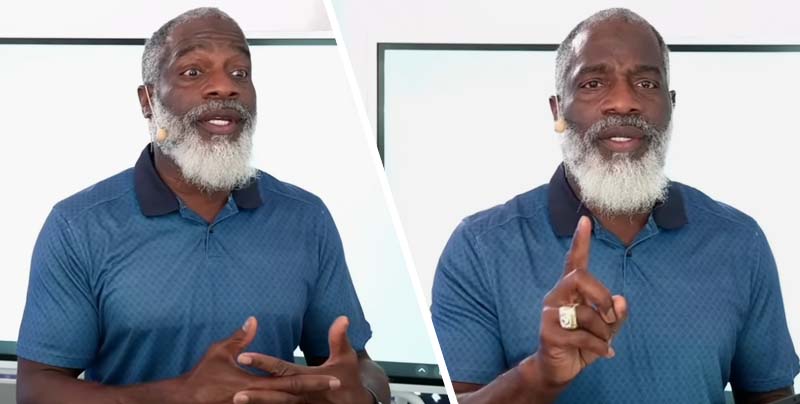Have you ever noticed how some people create wealth effortlessly while others struggle to make ends meet? The difference isn’t just about working harder—it’s about thinking smarter. Mind Over Money Mastery, a concept championed by Myron Golden, teaches that mastering your thoughts and beliefs about money is the first step toward achieving financial success.
The concept is simple: if you can change how you think about money, you can change how money works for you. It’s about understanding that wealth is more than just numbers in a bank account—it’s a product of creativity, effective communication, and the ability to see opportunities where others see obstacles.

The Four Levels of Value: Unlocking Greater Earnings
A key principle in Mind Over Money Mastery is understanding the four levels of value that determine how much money you can earn. Each level represents a different way of adding value to the world, and as you move up these levels, your income potential grows.
1. Implementation: Working with Your Hands
The first level of value is called implementation, where people use their physical effort to make money. This includes jobs like construction work, retail, or anything that involves manual labor. While these roles are important, they typically have a ceiling on how much money you can make because they are tied directly to your work hours. If you’re trading time for money, there’s a limit to how much you can earn.
Think about it this way: if you work 40 hours a week at a certain hourly rate, your income can only go so high unless you work more hours or find a higher-paying job. This means that the growth opportunities are limited at this level. While many people find fulfillment in hands-on work, they might want to explore other avenues for financial growth.
2. Unification: Leading Others
The second level is unification, where you’re no longer just working with your own hands—you’re leading and managing others. People at this level, such as managers or business owners, leverage the work of a team to accomplish more. Although the income potential increases here, it’s still capped because you’re relying on the efforts of a limited number of people.
Imagine you’re a team leader at a fast-food restaurant. You’re not just flipping burgers; you’re overseeing your team and ensuring everything runs smoothly. This role offers more financial rewards, but it still has limits because your earnings depend on your team’s productivity and the restaurant’s overall performance.
3. Communication: The Art of Influence
Next is communication, the level where real financial growth begins. This is where people use their words to create value. Think of professional speakers, salespeople, marketers, and authors. These individuals know how to influence others and persuade them to take action, whether buying a product or supporting a cause. At this level, income is no longer tied to physical effort or managing others but rather to the power of your message.
Consider a top-selling author. They don’t just write for the sake of it; they craft messages that resonate with readers and inspire action. Their ability to communicate effectively translates into sales, which can lead to significant financial rewards.
4. Imagination: Creating Something New
Finally, we reach imagination, the highest level of value. This is where people create something entirely new—a product, a service, or a solution to a problem—that can generate unlimited wealth. Entrepreneurs, inventors, and innovators operate at this level, using their creativity to generate value that transcends traditional income limits. There’s no cap here; the limit is how far your imagination can go.
Think of the creators behind groundbreaking technologies, like smartphones or apps. Their innovative ideas have changed industries and led to vast fortunes. This level is about harnessing your creativity to forge new paths and opportunities.
Why Most People Get Stuck at the Lower Levels
Most people never make it past the implementation or unification levels because they believe hard work alone will bring financial success. While hard work is important, it’s not enough if you’re operating at lower levels of value. You can work long hours every day, but if you’re not using your creativity or communication skills, there’s a limit to how much you can achieve.
The key to breaking free from these lower levels is changing your mindset. Myron Golden emphasizes that it’s about realizing that you have the potential to create more value by communicating effectively and thinking creatively. Once you start operating at higher levels of value, your financial opportunities expand.

How Your Mindset Shapes Your Financial Future
The way you think about money has a significant impact on your financial reality. If you believe that money is hard to come by or that you’re always going to struggle, those beliefs will shape your actions and limit your success. On the other hand, if you adopt a mindset of abundance and see opportunities everywhere, you’ll start to notice new ways to create wealth.
One of the core teachings of Mind Over Money Mastery by Myron Golden is to approach financial decisions with a logical mindset, not an emotional one. It’s easy to let fear or excitement drive your choices, but these emotions can lead to poor decisions. Instead, focus on thinking critically and staying disciplined in managing money.
Steps to Improve Your Money Mindset
- Focus on Possibilities, Not Limitations: Stop focusing on what you don’t have or what’s going wrong. Instead, start looking for ways to turn challenges into opportunities. Ask yourself, “What can I learn from this situation?” or “How can I make the best of this challenge?”
- Develop Your Communication Skills: Effective communication is key to earning more, whether negotiating a deal, giving a presentation, or trying to sell a product. Practice expressing your ideas clearly and confidently. Join a public speaking club or take online courses to improve your skills.
- Embrace Creativity: Don’t be afraid to think outside the box. The most successful people come up with new solutions to old problems. Set aside time for brainstorming, and don’t limit yourself to conventional thinking.
- Think Long-Term: Building wealth takes time and patience. Avoid shortcuts and focus on strategies that lead to lasting success. Consider investing in education, networking, and skills development to prepare for future earnings.
The Role of Social Media in Shaping Your Financial Mindset
Believe it or not, social media greatly influences how you think about money. Platform algorithms like Instagram and YouTube show you content based on your beliefs. If you think making money is hard, you will likely see posts reinforcing that belief.
It’s important to be aware of these influences and seek positive, growth-oriented content that challenges your thinking. Surround yourself with messages that promote abundance and success. The more you expose yourself to content encouraging creativity and critical thinking, the more your mindset will shift toward financial growth.

Why Communication Skills Are Essential for Wealth
Your ability to communicate effectively can greatly affect how much money you earn. People who know how to articulate their thoughts clearly and persuasively are likelier to succeed in business, sales, and leadership roles. This is because they can convey their ideas in a way others understand and value.
Communication is one of the most valuable skills you can develop to achieve higher levels of financial success. Whether speaking to an audience, writing an email, or pitching an idea, mastering the art of communication can significantly boost your income.
The Power of Aligning Your Mind and Heart
Ensuring your mind and heart are aligned when making financial decisions is essential. While logic should guide your choices, you should stay true to your values and goals. When you align your mindset with what truly matters to you, you can make smarter, more intentional decisions that lead to lasting wealth.
This alignment helps you stay focused on the big picture and avoid emotional decisions that might undermine your long-term financial goals. If you value creativity, seek projects that allow you to express that creativity while generating income.
FAQs: Frequently Asked Questions about Mind Over Money Mastery
- What is Mind Over Money Mastery?
Mind Over Money Mastery is a concept developed by Myron Golden that focuses on the importance of mindset in achieving financial success. It teaches that mastering your thoughts and beliefs about money is the first step toward wealth. - What are the four levels of value?
The four levels of value are implementation (working with your hands), unification (leading others), communication (influencing others through words), and imagination (creating new ideas or products). - How does communication affect income?
Communication is one of the most valuable skills for earning money. By persuading and influencing others through your words, you can create more opportunities and unlock greater financial potential. - How can I improve my money mindset?
To improve your money mindset, focus on seeing opportunities instead of obstacles, develop strong communication skills, embrace creativity, and think long-term about your financial goals. - Why do most people get stuck at the lower levels of value?
Most people get stuck at lower levels of value because they believe that hard work alone will bring financial success. However, moving to higher levels of value requires a shift in mindset, creativity, and effective communication.

Transform Your Mindset and Transform Your Finances
Mastering your mind is the first step to mastering your money. By understanding the four levels of value and focusing on creativity, communication, and critical thinking, you can unlock your financial potential and start building real wealth. It’s time to break free from limiting beliefs and embrace the mindset of abundance and success.
Ready to take the next step on your financial journey? Visit MyronGoldenLive.com to learn more about Mind Over Money Mastery principles and discover how you can transform your financial future.












